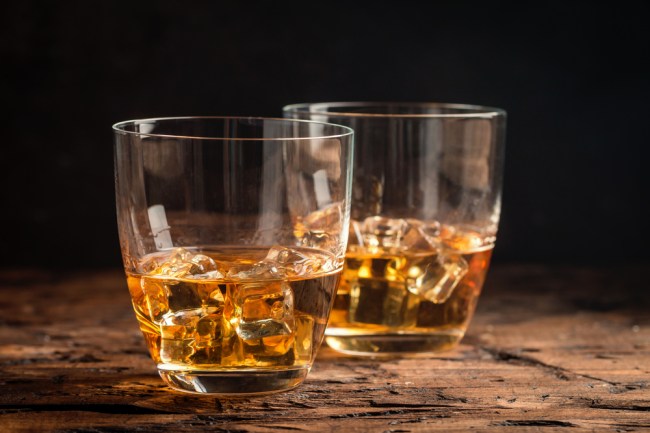
Shutterstock
If you’re a fan of scotch, bourbon, or any other drink from the wonderful world of grain-based dark liquors, you’ve probably noticed there’s some inconsistency when it comes to the spelling of the word that encompasses the entire family of drinks: whiskey… or should I say “whisky?”
I didn’t actually know the answer to that question.
Business Insider spoke to Ewan Gunn, a Whisky Master and Global Brand Ambassador at Diageo. Gunn— who specializes in Scotch— has worked in the industry for almost two decades, so it’s safe to say he knows a thing or two about his whisk(e)y.
According to Gunn, the difference in spelling comes down to the liquor’s country of origin as opposed to any specific method of production. As a general rule, spirits made in Scotland, Canada, and Japan are dubbed “whisky,” while “whiskey” generally refers to anything distilled in Ireland or the United States.
[protected-iframe id=”0ad88f553507dc2f643bdc64ced6b801-97886205-55047561″ info=”//static.apester.com/js/sdk/v2.0/apester-javascript-sdk.min.js” height=”1052″ class=”apester-media”]
Just to complicate matters, there are a few American brands who eschew the “e,” including Maker’s Mark and Old Forester. Way to be difficult, guys.
At least they’re pronounced the same— the last thing I need is another excuse for a douchey bartender to correct me for not knowing something.